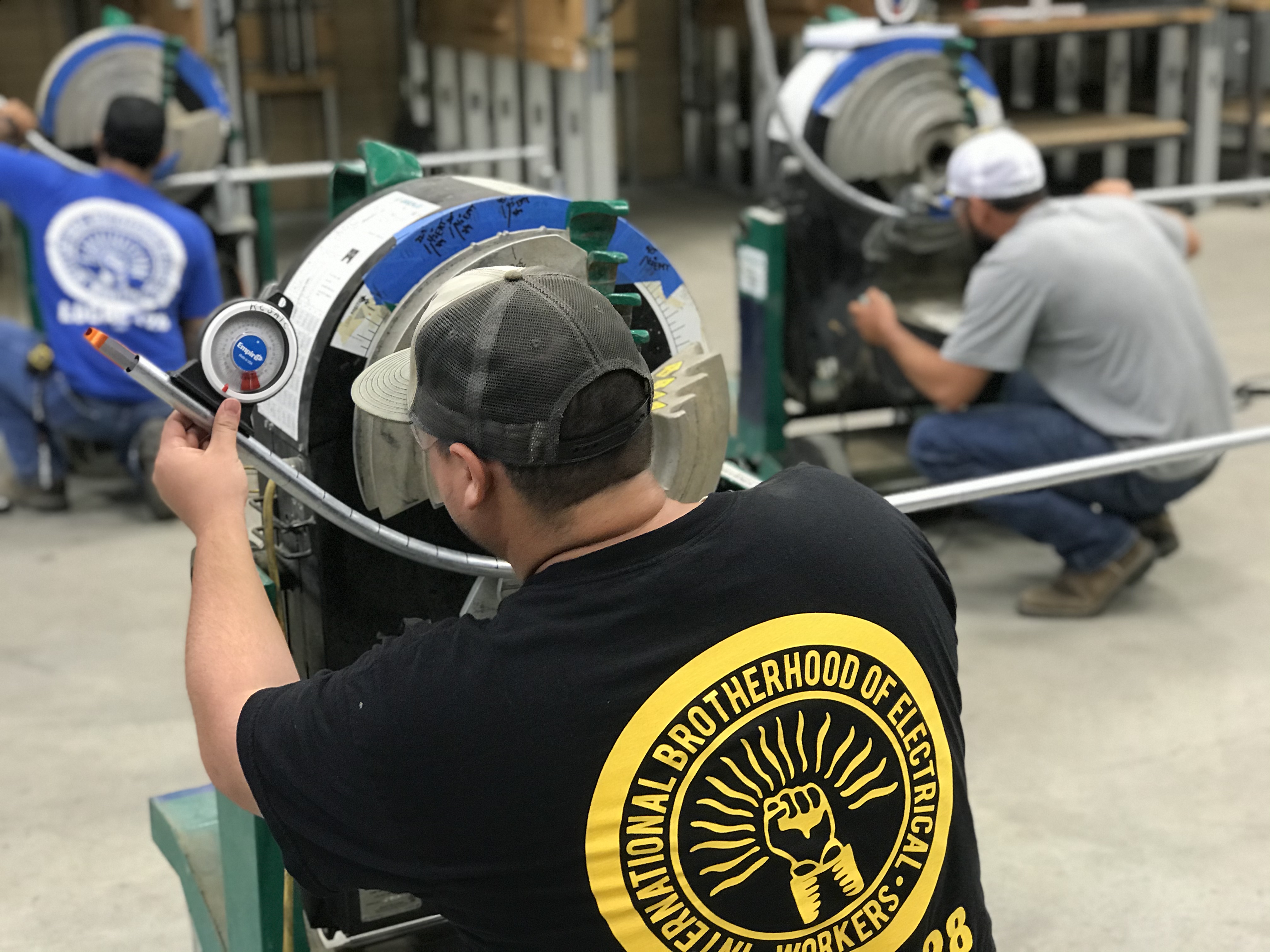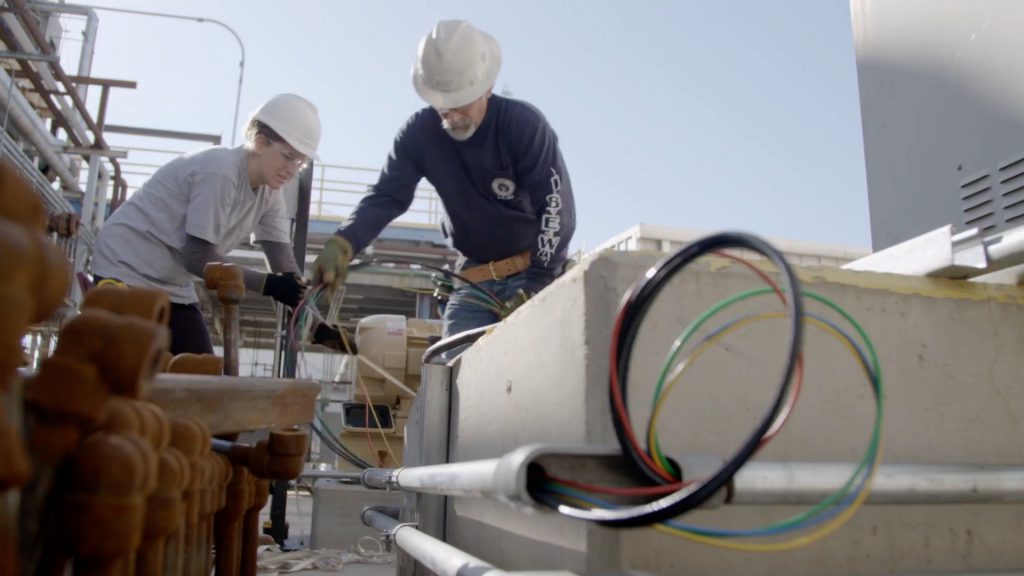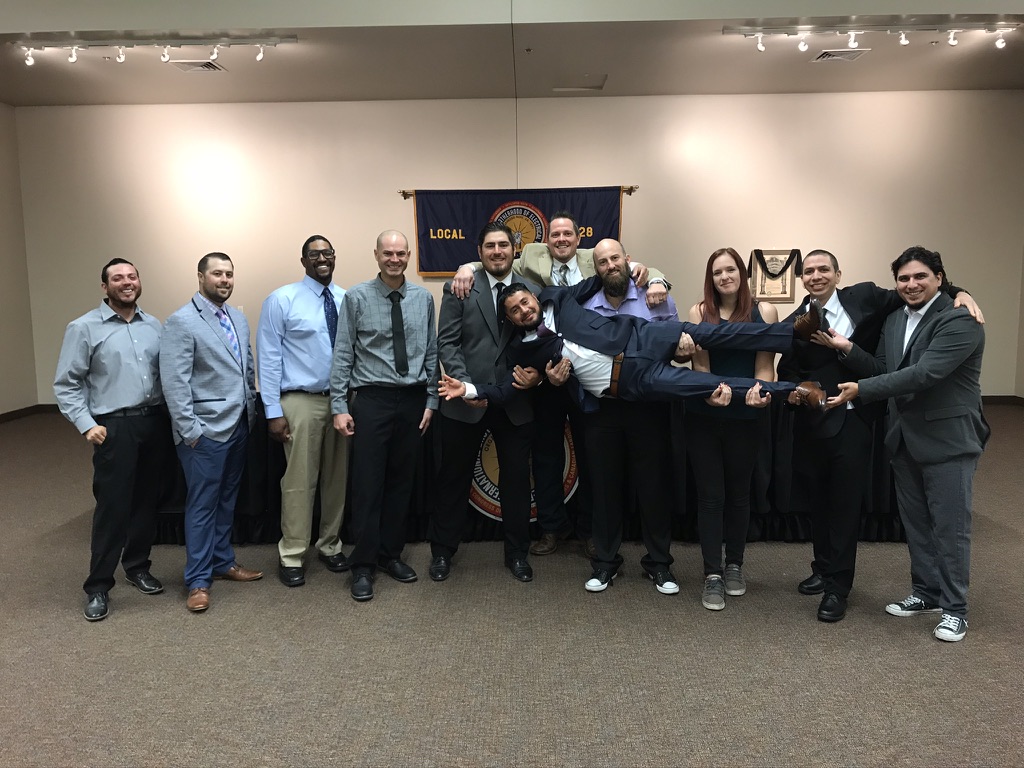APPRENTICESHIP

WHAT IS AN APPRENTICESHIP PROGRAM?
The Kern County Electrical Joint Apprenticeship and Training Committee (JATC), offers an electrical apprenticeship governed by the National Electrical Contractors Association (NECA) and the International Brotherhood of Electrical Workers (IBEW) Local Union 428.
In an apprenticeship, not only do you learn the trade through a traditional curriculum based classroom setting, but you also work full-time learning the skills of the trade on the job. A major difference between a trade-based apprenticeship and a traditional college is that you are being paid while you learn as opposed to having to pay while you learn.
No prior electrical experience is required due to the fact that you will learn everything you need to know about being an electrician on the job and in the classroom. Our Inside Wireman Electrical Apprenticeship Program is 5 years.
HOW DOES THE APPRENTICESHIP WORK?
Once you are accepted into our program, you will be assigned to one of our many signatory contractors to begin your on the job training. You will begin attending class in either January or July depending on when you are accepted into the program.
When on the job, you will work full-time under the supervision of a state-licensed Journeyman Wireman. They will ensure that you are constantly learning new concepts and acquiring new skills. You will learn how to do things according to the appropriate codes and standards, as well as how to work safely and efficiently.
On the job, you are going to learn how to bend conduit, pull wire, terminate conductors, properly read blueprints, install devices and fixtures, and much more.


WHAT ABOUT THE CLASSROOM?
As for the classroom, apprentices attend class one day every other week. The Kern County Electrical Apprenticeship offers a day school environment which means on your scheduled class day you will come down to the JATC for 8 hours. This is already agreed upon with the contractors, so they are aware that you will be missing that day of work.
In the classroom, we typically spend most of the day learning the theory of the electrical trade in a traditional classroom environment. The other portion of the day is spent demonstrating the newly learned concepts through instructor-led demonstrations and hands on labs.
Some of the concepts that we will cover in the classroom include conduit bending, blueprint reading, AC/DC theory, the National Electrical Code, circuitry, transformers, motors, motor control, and a lot more. We study all of these concepts in-depth to ensure you receive a well-rounded education to facilitate your development on the job.
How Much Does It Pay?
The Apprenticeship Program has a starting wage of $24.14 per hour. You do not stay at that wage the entire apprenticeship, instead, every six months each apprentice will receive a $2.27 per hour wage increase provided they meet all of the requirements to complete the semester. You will receive full medical and dental benefits, with no additional cost to you, after you have worked your first 300 hours. After you have successfully completed your first year of apprenticeship you will begin accruing retirement benefits. Due to the fact that our jurisdiction is all of Kern County, some jobs offer sub-pay in addition to your wage to supplement the drive time.
What Else Do I Need To Know?
The Kern County Electrical Apprenticeship Program comes at no cost to the apprentice. There are no fees for tuition, books, or classes. During your 5 year apprenticeship, you will have accumulated a minimum of 8,000 hours of on the job training, over 1,000 hours of classroom instruction, and you will earn your California State Electrician Certification. Our program is sponsored by Bakersfield College, so you will also receive college credits through BC. Once you complete your apprenticeship, you will have the ability to work out of any IBEW Local Union across the country. Visit the apply page for the application procedures and requirements.
